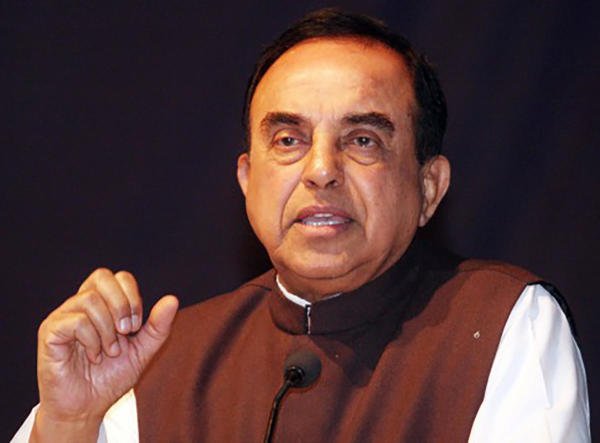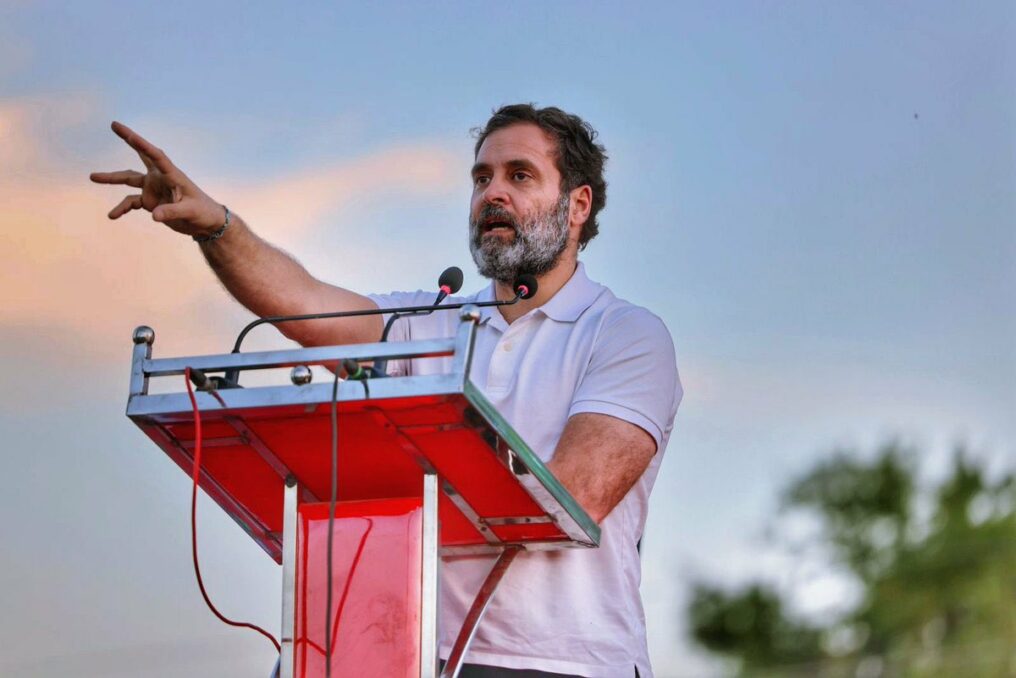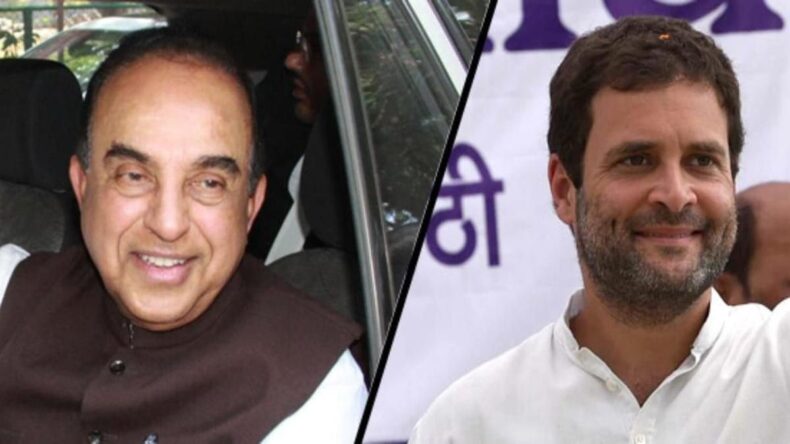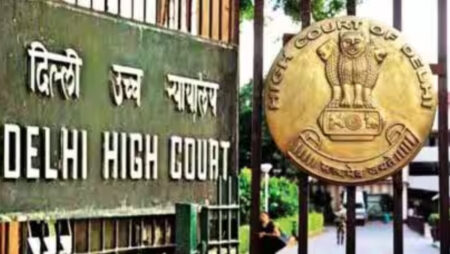New Delhi: A Delhi court has granted Bharatiya Janata Party (BJP) leader Subramanian Swamy the opportunity to file a reply opposing Rahul Gandhi’s application for a fresh ordinary passport.

Swamy, in his argument, emphasized that the cases against Rahul Gandhi are still pending in court, and allowing him to travel could hinder the ongoing investigation in the National Herald case.
However, advocate Tarannum Cheema, representing Gandhi, countered that no travel restrictions have been imposed on him by the court.
To obtain a new ordinary passport in time for his next trip to the United States, Rahul Gandhi submitted his application on Tuesday. Gandhi made this request after giving up his diplomatic access in March 2024, when he was no longer eligible to serve in the parliament due to a defamation conviction.
Gandhi also requested the court’s permission to apply for a passport because he is a defendant in the National Herald case, which was brought by Swamy in 2012. Gandhi, his mother Sonia Gandhi, and other co-accused were all granted bail in the case in December 2015.
The National Herald case, initiated by Swamy in 2012, alleges fraud, land grabbing, and misappropriation of funds by Rahul and Sonia Gandhi, among other associates, in their acquisition of the National Herald newspaper.
Additional Chief Metropolitan Magistrate Vaibhav Mehta, while acknowledging the fundamental right to travel, pointed out that no restrictions were imposed on Rahul Gandhi when he was granted bail by the trial court in 2015.
Consequently, the court decided to allow Subramanian Swamy to submit a written reply, and the matter has been scheduled for further hearing on May 26.
With the court allowing Subramanian Swamy to present his opposition to Rahul Gandhi’s passport application, the case has taken a new turn.
The outcome of the upcoming hearing on May 26 will determine whether Gandhi will be granted permission to obtain a new passport and proceed with his intended visit to the United States.
As the legal battle continues, the involvement of prominent political figures adds further significance to this court proceeding.
Rahul Gandhi’s defamation case
Rahul Gandhi has been convicted and sentenced to two years in jail by the Chief Judicial Magistrate’s court in Surat. The verdict resulted from a criminal defamation case filed by Gujarat BJP leader Purnesh Modi, following Gandhi’s defamatory comments made during a speech in 2019.

During an election rally, Gandhi sparked controversy by questioning why individuals with the surname “Modi” were often associated with acts of theft and corruption. He specifically mentioned the names of Nirav Modi, Lalit Modi, and Narendra Modi, who are unrelated but share the same surname. This statement triggered a backlash and prompted Purnesh Modi to file a criminal defamation complaint against the politician.
The court found Rahul Gandhi guilty under Sections 499 and 500 of the Indian Penal Code (IPC), which pertain to criminal defamation. Taking into account the gravity of the offense, Chief Judicial Magistrate pronounced a two-year jail sentence for Gandhi. The conviction was a significant blow to the politician, and the following day, he was also disqualified from his position in the Lok Sabha, the lower house of the Indian Parliament.
The legal proceedings against Rahul Gandhi and subsequent conviction have sparked intense debate across the country, with opinions divided on the extent of freedom of speech and the consequences of making defamatory statements against public figures.













